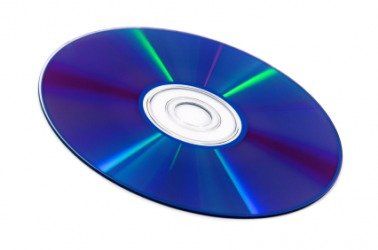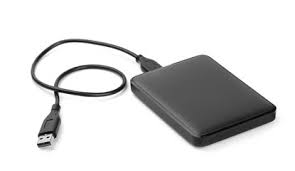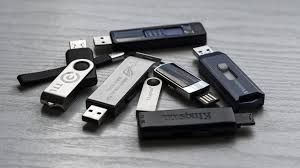How We Store Your Digital Memories
TO SUM UP THIS ENTIRE PAGE IN A SINGLE STATEMENT:
WE RECOMMEND MAKING ONE FULL COPY OF ALL YOUR DIGITAL WORK, IN ITS HIGH-DEFINITION DIGITAL FORM, ON BLU-RAY OPTICAL STORAGE DISCS (FOR LONG-TERM ARCHIVING),
AND ONE SET ON A FLASH DRIVE (FOR VIEWING, PRINTING AND SHARING)
For the "why" of that recommendation, please read below:

BLU-RAY OPTICAL STORAGE DISCS:
OUR RECOMMENDED STORAGE MEDIA FOR YOUR FINISHED PROJECT
A: The Blu-Ray optical disc can be used to store large amount of data safely and accurately for about 30 years.
Why we do not recommend storage on CDs and DVDs is simple: They are limited by what they are made of. They are only expected to last an average 4-7 years before they begin to fail from internal deterioration (think that your data is written in tiny "Morse code" of dots and dashes, and over time the paper that the Morse code is written on begins to fade, until it can no longer be read).
The Compact Discs of the 1970s and 1980s, as well as the DVDs of the 1990s, did a great job in pioneering audio and video storage, but since the "digital revolution" began in the late 1990s our needs have increased, and so (luckily for us!) our technology has also made tremendous advances, allowing storage to keep pace with our ability to digitize.
By making the first and most important copy to Blu-Ray data discs, we are creating a "digital master" copy from which you can make numerous other copies in various formats (flash drives, discs, hard drives, etc) far into the future. And, unlike traditional hard drives, which have moving parts and which store your data magnetically, Blu-Ray optical discs have no moving parts and they do not store your memories magnetically, so they are far less likely to fail on their own.
Q: BUT WHAT IF I DON'T HAVE A BLU-RAY DRIVE/PLAYER?
A: No worries...you don't necessarily need one at the time that we complete your project and create your discs.
Blu-Ray discs have been in the United States since 2006 and are rapidly replacing DVDs. Don't worry, your DVDs will always be around just like music CDs are, but they will be in far less use, and Blu-Ray players and drives also play DVDs and CDs, as well, so you will always have a player. You may get one in the future...and even if you don't, the discs keep your precious memories just as safe whether you have a Blu-Ray drive or not. A digital professional is almost sure to already have one or more.
Let's look at the advantages and disadvantages associated with two of the most common storage devices: Hard drives and flash drives.
Hard Drive Advantages:
1) Affordable solution for storing large amounts of photos, videos, and data; and
2) Can be made portable in some cases.
Hard Drive Disadvantages:
1) Data can be compromised by moisture, heat, mishandling, physical breakage, an overcharge of electricity, or a strong magnetic field;
2) They have limited lifespan, much like your car does and, after so many hours of running and/or so much use, they CAN and WILL fail eventually...it's unavoidable; and
3) Attempts to recover data from damaged hard drives can be complicated, expensive, and the results are often incomplete.
OUR CONCLUSION: HARD DRIVES ARE AFFORDABLE STORAGE BUT CANNOT BE CONSIDERED EITHER SAFE OR PERMANENT.
2. FLASH DRIVES
Flash Drive Advantages:
1) Portable solution for storing and transporting small-to-medium-sized amounts of photos, videos, and data; and
2) Can be made portable in some cases.
Flash Drive Disadvantages:
1) Data can be compromised by moisture, heat, mishandling, physical breakage, or an overcharge of electricity, or a strong magnetic field;
2) They have a limited lifespan (some estimates say as little as 2-3 years, much less than a traditional hard drive) and, after a certain number of readings and writings, the memory chip inside CAN and WILL fail...it is a mathematical certainty.
And because the storage of your data on a flash drive is on a memory chip, the chances of making a good recovery of your data are much less than with a traditional hard drive if/when it fails.
CONCLUSION: FLASH DRIVES ARE GREAT FOR PORTABLE STORAGE BUT THEY CANNOT BE CONSIDERED EITHER SAFE OR PERMANENT.



